SUMMARY
This is AI generated summarization, which may have errors. For context, always refer to the full article.
![[Dash of SAS] The devil and the deep blue sea](https://www.rappler.com/tachyon/2021/10/devil-deep-blue-sea-october18-2021-sq.jpg)
It has been more than two years since Nante Manlangit’s feet have touched solid ground. He does not know how many more days he will have to endure this or how much longer he can last.
Nante and 28 other Filipino migrant fishermen are stranded onboard three fishing vessels, the Han Rong 362, 366, and 369 ,floating near the port of Xiamen, China. They are running out of food, clean water, and hope.
“Hindi na talaga namin kakayanin. Wala na kaming makain o mainom. Nagmakakaawa na po namin na ma-rescue,” Manlangit said, his voice and his composure cracking over the patchy Zoom connection.
(We can’t take much more of this. We don’t have anything more to eat or drink. We are begging for rescue.)
Manlangit set sail on September 26, 2019 for what should have been a one-year contract to fish. When their contract ended, he and the other fishermen were made to continue fishing. It has been eight months since they have received their salary. They are worried about their families in the Philippines who depend on them. Amid the storm that is raging, their loved ones back home are worried about their safety.
“This qualifies as abandonment,” said Ed dela Cruz of SEANetwork, a group of grassroots organizations of migrant workers and their families. The crew is employed by Global Maritime and Offshore Resources, Inc and its Chinese principal, Jenn Yih Song Seafood LTD.
According to Dela Cruz and the fishermen’s families, the employment agency has been ignoring the crew’s pleas to be repatriated.
One of the most dangerous jobs in the world
The dangers of a life at sea were stripped bare by COVID-19. When countries closed their ports and sealed off their borders to keep contagion from spreading, thousands of seafarers were forcibly exiled from home. Migrant fishermen marooned on their ships in Uruguay and China took to social media to post videos of their living conditions and their plea to be rescued. Some fishermen had died on board and those who survived were living among the dead wondering if they, too, would be left to die.
With the Philippines being the largest supplier of seafarers in the world, Filipino seafarers were among the most at risk. The uneven application of maritime laws have left migrant fishermen the most vulnerable. Not all maritime laws include migrant fishermen under the definition and protections for seafarers.
Fishing in the open sea is one of the most dangerous jobs in the world. Climate change has forced migrant fishermen to sail farther and farther into the open sea, chasing after squid and tuna. They work nearly non-stop onboard spartan fishing boats that often do not have adequate safety equipment or protocols in place. For this kind of back breaking work, they are paid about $300 a month.
Manlangit is all too familiar with the perils of life at sea. Before he set sail in 2019, he was on board a Fu Yuan Yu fishing vessel.
Last year, the Taiwanese operated Fu Yuan Yu kept dozens of Filipino migrant fishermen stranded onboard for months. When the crew was at last repatriated to the Philippines, the crew demanded that they receive their unpaid wages. The agency had declared bankruptcy and the crew was left to face the financial fall out and unemployment at home. There was little choice for former Fu Yuan Yu crew members like Harold Fuentes but to set sail again.
According to the Philippine Overseas Employment Agency (POEA), Manlangit’s recruitment agency, Global Maritime and Offshore Resources, Inc., has been blacklisted. Additionally, POEA Administrator Bernard Olalia gave assurance that the crew’s wages would be paid and the Department of Foreign Affairs has sent supplies to the stranded crew.
However, more than these band-aid measures, the government must address the systemic issues that plague the fishing industry. Recruitment agencies reneging on their responsibility to safeguard the employment rights and welfare of the migrant fishermen is but one issue. It is not unheard of for recruitment agencies to declare bankruptcy to circumvent their financial responsibilities to migrant workers.
However, other factors such as current foreign policy regarding China are at play. As warned by Jay Batongbacal, director of the University of the Philippines Institute for Maritime Affairs and Law of the Sea, the continued encroachment of Chinese fishing vessels into the Philippine exclusive economic zone (EEZ) will mean a dwindling fish catch for local fishermen. With their local livelihoods gobbled up, local fishermen will have little choice but to earn a living farther away from home even if it means working under exploitative conditions.
If these overlapping issues are not addressed, Filipino migrant fishermen will continue to sail off to danger and uncertainty and return home traumatized, injured, or dead.
Manlangit and his crew watched helplessly as the other fishermen were rescued. The Indonesians were repatriated in June and the Burmese fishermen in July.
Marooned on their ships, the men face the tragic irony of life at sea.
Though you’re surrounded by water, safe drinking water is one of the hardest things to come by. When supplies of bottled water run out – and they quickly do – they are left to drink ocean water filtered by rusty pipes.
The rust turns the water into a muddy brown as it runs through the pipes. It sticks to the water so much that not even boiling the water can dissipate the metal taste. The men have described nearly gagging on rusted salt water.
The loss and scarcity of clean water is the start of a downward spiral. When there is no clean water, the fishermen begin to fall ill. There is no doctor and they don’t know what the medicine on board the ship is for because its labels are written out in Chinese.
Some of the men will get sick. Some will die. Some bodies are thrown overboard for a purportedly benevolent burial at sea.
Abandonment and fear are what lie between the devil and the deep blue sea. The hope of being rescued is your only salvation. – Rappler.com
Ana P. Santos is an award-winning journalist reporting on sexuality, sexual health, and the Filipino diaspora. She is currently pursuing a postgraduate degree in Gender (Sexuality) at the London School of Economics and Political Science as a Chevening scholar. Follow her on Twitter: @iamAnaSantos and Facebook SexandSensibilities.com
Add a comment
How does this make you feel?
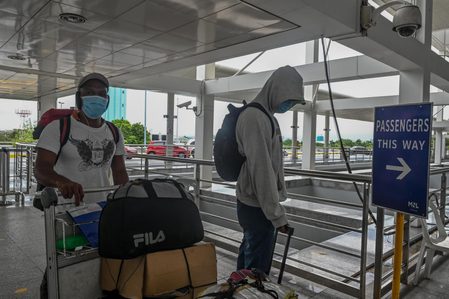
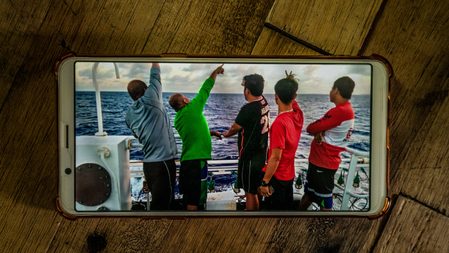


![[Time Trowel] Evolution and the sneakiness of COVID](https://www.rappler.com/tachyon/2024/02/tl-evolution-covid.jpg?resize=257%2C257&crop=455px%2C0px%2C1080px%2C1080px)


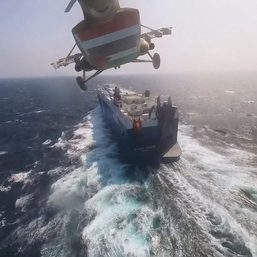

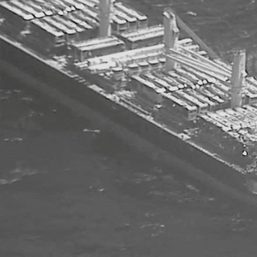
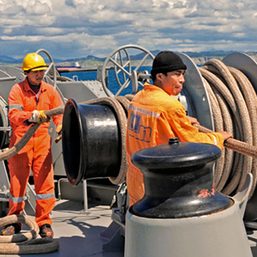


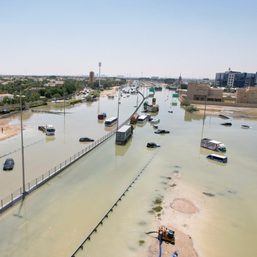
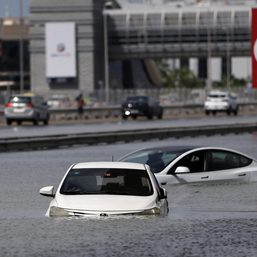
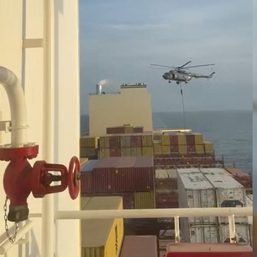

There are no comments yet. Add your comment to start the conversation.